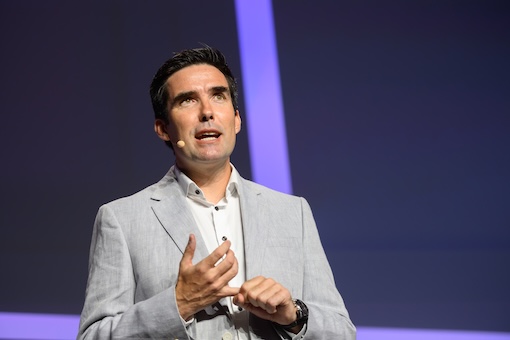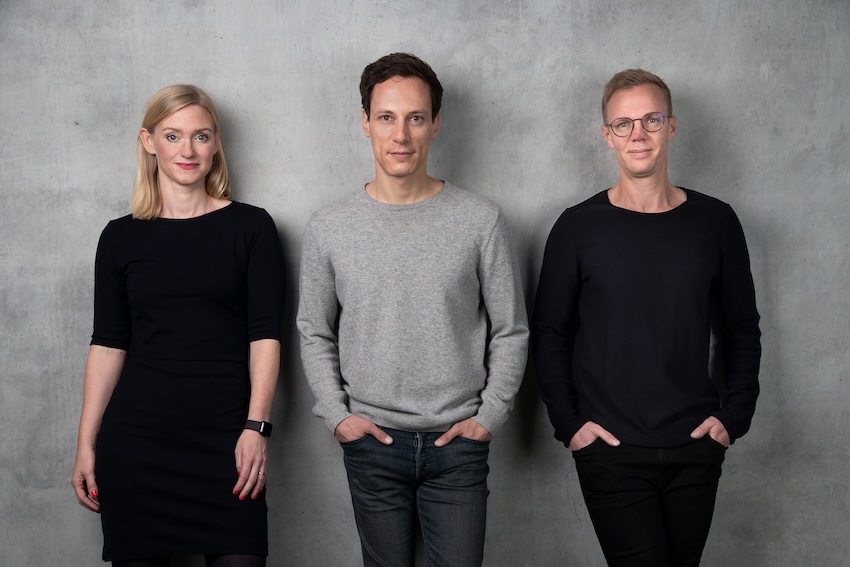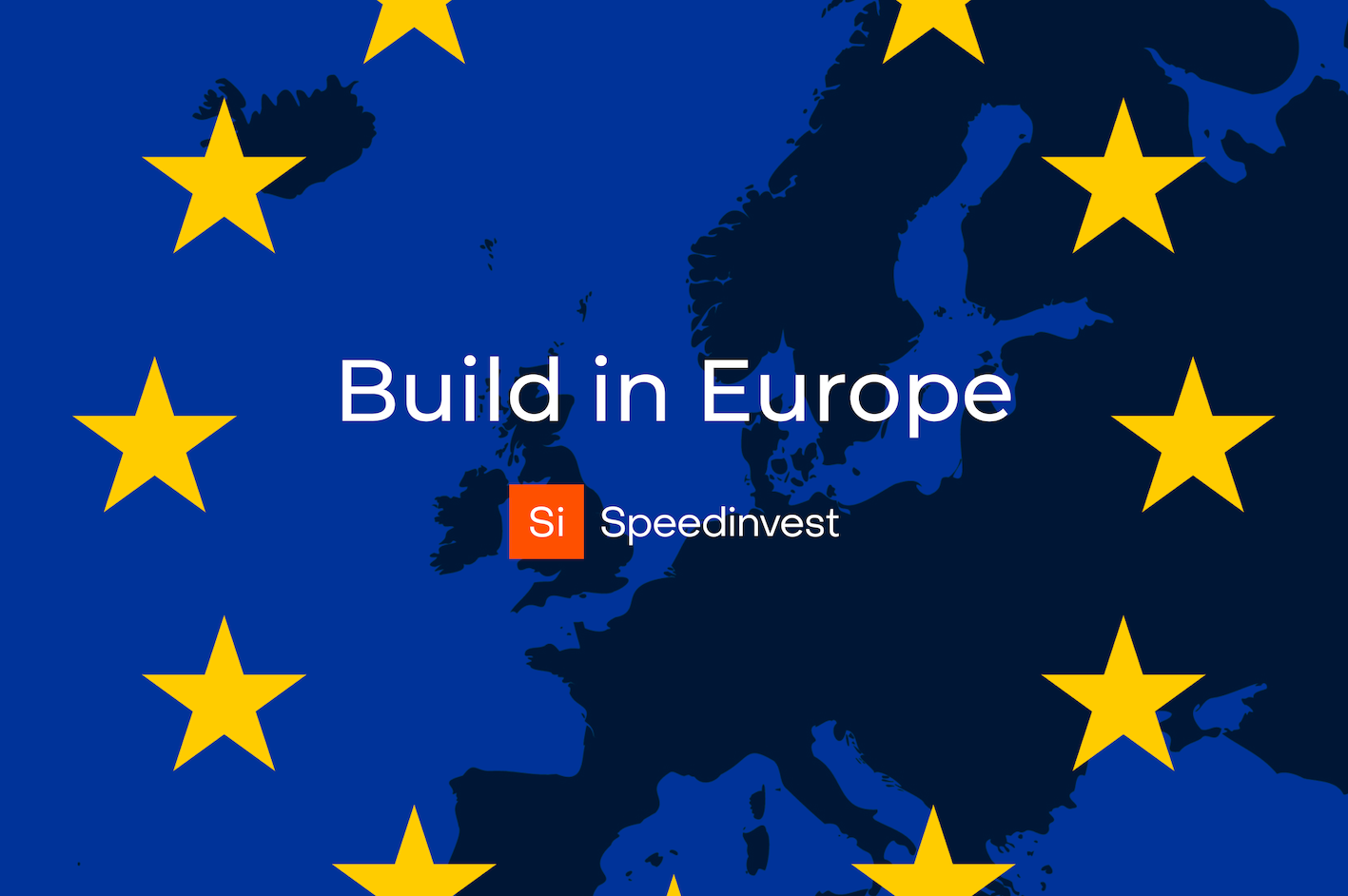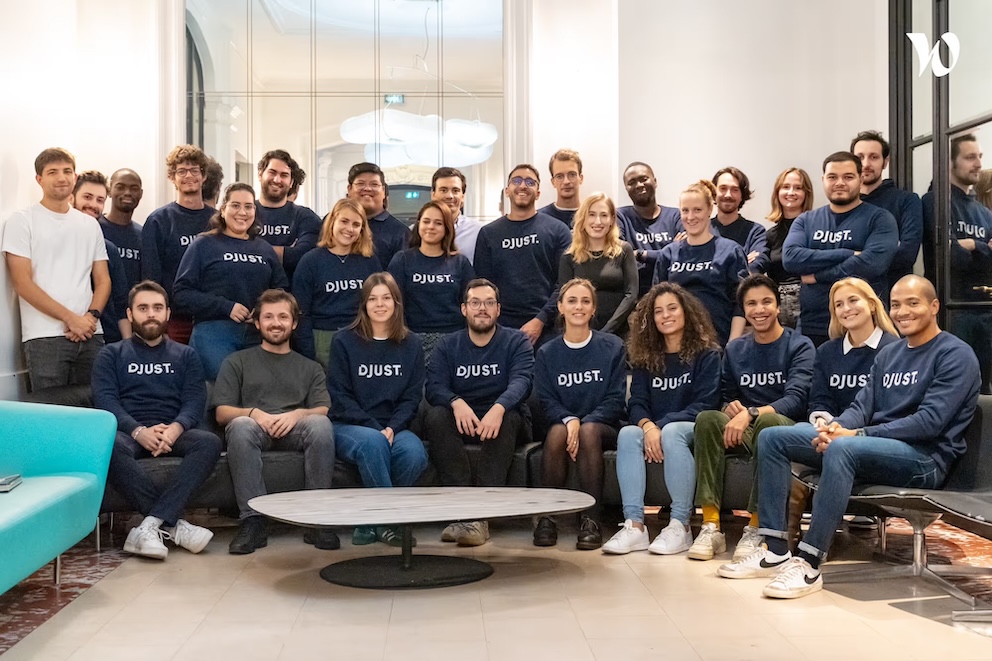Talent in European Tech: Turning Interest into Integration
Europe stands at a unique crossroads, with a previously unthinkable opportunity to attract top global tech talent, fueled by shifting dynamics in the US.
In this article, part of our Build in Europe series, we go beyond merely identifying challenges and aim to provide solutions to convert this surge of interest from global talent in moving to Europe into lasting leadership and growth opportunities. In this series, we will look to cover the three core challenges for Europe to address: Talent, Capital, and Regulation. The series addresses the three core challenges Europe must overcome: Talent, Capital, and Regulation. To tackle these, we actively work with politicians, policymakers, and industry bodies across our core markets, Austria, Germany, France, and the UK, as well as at the EU level, to push for action rather than words on the major roadblocks to European innovation.
Talent is a key driver of success in both tech and academia. Hiring the best people unlocks new avenues for companies to grow, scale, and lead globally. We are calling on policymakers to adopt the proposals outlined below to take advantage of the current moment and build a stronger foundation for Europe’s future growth.
We dive deep with founders, academics, and policymakers to uncover bold, actionable proposals, from a 'no-questions-asked' visa and radical funding overhauls to a pan-European '28th regime', that could finally help Europe seize this moment and truly win the global talent race.
In addition to our research, we spoke to Matthias Knecht, cofounder of Berlin-based fintech Billie and co-initiator of Project Europe; Jens Schneider, Rector for Research and Innovation at TU Vienna; Anna Stürgkh, Member of the European Parliament; Conor McNamara, EMEA CRO at Stripe; and Oliver Merkel, cofounder of Flink.
Europe’s scientific and tech ecosystems are experiencing an influx of interest from global talent, particularly from the US, amid ongoing political confusion. But while headlines speak of opportunity, founders and operators know the reality is more complex. As political uncertainty grows abroad and the EU launches initiatives like “Choose Europe for Science,” new momentum is building. The question is whether Europe can convert this window into long-term leadership.
Talent is central to that equation. Both within Europe and externally, the ability to hire and retain top people is a crucial factor in a company’s ability to grow and in academia’s capacity to produce breakthrough research.
The recent changes to the US H1B visa system have only accelerated this shift. Once the fastest route for global tech talent, the program has become slower, more expensive, and harder to access. For founders in Europe, that creates a once-in-a-generation opening: talent that would have defaulted to Silicon Valley is now weighing Berlin, Paris, or London instead.
And it’s not just Europe that has noticed this opportunity. Scholars studying fascism and authoritarianism at Yale have moved to Canada, while the Australian Strategic Policy Institute has called for the country to take advantage of the US brain drain.
Europe can offer “scientific refuge” to researchers and academics in the US, but tech talent remains clustered in Silicon Valley, something that requires more than a difficult political moment to fix.
To explore the strengths, gaps, and fixes in Europe’s talent landscape, we spoke to startup leaders on the front lines of growth and hiring:
From interest to intent: a shifting transatlantic current
For many US-based scientists and engineers, Europe is increasingly viewed not just as an alternative, but as a great long-term bet.
Matthias Knecht, cofounder at Berlin-based fintech Billie, sees a deep shift in sentiment: “My very personal viewpoint is that underlying trust in the US is fundamentally broken. While some of the effects we’re seeing might be temporary, the fundamental attacks on core values like academic freedom will have long-term repercussions.” He points to a Nature survey showing that 75% of American scientists have considered leaving the US, with Europe high on the list of preferred destinations. New EU programs like “Choose Europe for Science”, a €500 million initiative aimed at attracting global researchers, may help tip the scales further.
Jens Schneider, Rector for Research and Innovation at The Technical University of Vienna, is seeing this change firsthand: “We’re seeing researchers return from the US due to quality of life, better research environments in key disciplines, and lower living costs.”
For Anna Stürgkh, a Member of the European Parliament, this trend is rooted in broader political instability in the US. “As long as Trump is running the country, this will be a lasting trend. It’s not only about his policies but about the instability of his presidency. Researchers lack certainty about their funding. If this attitude persists, it will take years to rebuild what was lost.”
Still, growing interest is not the same as lasting commitment. Conor McNamara, EMEA CRO at Stripe, cautions that Europe cannot rely solely on US disillusionment as a reason for talent to move. “At Stripe, we are optimists on Europe’s medium-term fate. But we recently surveyed European founders, and 45% believe the business climate is deteriorating. They’re 2.5 times more likely to see North America as a growth opportunity than Europe itself. This paradox highlights that Europe needs fundamental reforms to convert interest into leadership.”

Speedinvest's Policy Proposals:
1. Create a unified European Startup Tech Visa
2. Improve stock option transparency and competitiveness
3. Building Europe’s Research Advantage
Create a unified European Startup Tech Visa
Visa reform is one of the most immediate and actionable levers for change. Programs like the EU Blue Card have existed for years, but they remain fragmented and slow.
If the US is pricing out startups by turning H1B visas into a six-figure lottery ticket, Europe can’t afford to replicate that mistake. A true pan-European tech visa would do the opposite, fast, affordable, and predictable, signaling to global talent that Europe is open for business while others close their doors.
For Knecht, part of the answer lies in language and process. “Administrative documentation remains a huge barrier; processes should be in English if we want to truly welcome global talent,” he argues. Programs like Germany’s Green Card and academic fellowships are useful but often bogged down by inconsistency and inefficiency. Additionally, he proposes a bold but simple solution: “Why not grant every researcher in engineering, tech, math, IT, and AI a 3-year, no-questions-asked visa and work permit? Just draw them in. After a few years, they’ll settle down and stay.”
In fact, in a competitive world of talent, speed and consistency matter more than complexity. “Europe needs a true pan-European tech visa with processing times measured in days, not months, and a harmonised approach to documentation and qualifications,” McNamara adds. “Companies can’t afford to wait six months for a hire to clear red tape”.
Working solutions need to come from policymakers, and voices are growing around reform to visa processes. A lot of the processes can now also be fully automated with the help of AI and better data sharing across agencies.
“We need EU-wide fast-track visas for top talents so they’re not faced with insurmountable bureaucracy,” Stürgkh said. “These should also support researchers who want to launch startups from their work.”
The Speedinvest proposal:
Introduce a pan-European Startup Tech Visa that guarantees:
- A 3-year, accelerated visa and work permit for engineers and founders in AI, IT, biotech, and deep tech, as well as other strategic core areas of the EU. All in a self-service tool that Startups and applicants can use.
- Easy frameworks for Science Visas, as well as financial and organizational support to attract top international researchers and entire research teams.
- Processing times under 10 days, with a single digital application portal in English. Processes can be automated with new technology to ensure speed and clarity for applicants and companies, while data sharing can be ensured across agencies and countries.
- Automatic portability across EU member states once approved, eliminating the need for reapplication when relocating between countries.
Improve stock option transparency and competitiveness
Bringing talent to Europe is only half the battle. The harder task is helping them build lasting careers and companies, requiring tangible reforms that improve the status quo. Changing perceptions of what Europe as a continent can offer talent, across a variety of fields from research to tech employment, is crucial to building a future in Europe.
“The biggest issue is ESOP,” Merkel adds. If Europe really wants to attract top operators, there needs to be a common, transparent framework. If you set up a VSOP/ESOP program, it’s considered income, and it will be fully taxed, which is completely stupid and gives me a disadvantage compared to US companies, for example.”
Germany has reformed its ESOP policies in recent years, reflecting greater urgency to stay competitive globally. The UK has also revised its equity rules, but more must be done to ensure top talent takes the risk of starting, building, or joining a business.
Schneider sees a deeper cultural issue: “Europe needs to foster a more entrepreneurial culture within academia. It’s not about copying Silicon Valley, it’s about aligning universities with industry and treating science and education as central to national development.”
One fix is to rethink business models and compliance. As McNamara puts it:
“A two-person startup shouldn’t face the same compliance burden as a multinational. And while EU funding exists in theory, the bureaucracy means many founders look elsewhere.” Stripe’s collaboration with the University of Limerick through its Immersive Software Engineering program is one example of how entrepreneurial education can be directly tied to industry needs.
At the heart of entrepreneurial culture is ownership. Employees, not just founders, need to feel like equity holders. Broader employee ownership through ESOPs is therefore in Europe’s clear strategic interest. Stronger equity allocations help startups attract and retain top talent in a global market where US companies already set the standard, while also ensuring that the value created in our ecosystem is more widely shared among those who build it. By doing this, we also empower a new generation of founders, angels, and experienced operators, strengthening the innovation flywheel.
The Speedinvest proposal:
Level the playing field for startup equity by creating a European Standard for Stock Options (ESSO):
- Tax stock options as capital gains, not income, ensuring parity with the US. This is also a key proposal from our friends at EU Inc.
- Introduce a minimum 10-year exercise window for vested options, so talent isn’t forced to abandon equity when leaving an employer.
- Employees will only be faced with a tax event at the point of sale. Clear rules should be in place if you switch countries within the same company or due to restructuring, so as not to face a taxable event like an exit tax.
- Publish a pan-European transparency framework with clear, comparable templates for ESOP/VSOP structures, available in English.
- Offer tax incentives for startups that grant broad-based employee ownership, encouraging equity culture across Europe.

Building Europe’s Research Advantage
Europe does offer meaningful advantages, especially in areas that matter to families, researchers, and those leaving increasingly politicized environments.
“Vienna is a great example,” says Schneider. “We offer world-class infrastructure - €300 a month for kindergarten, compared to $4,200 in the US - and real leadership in areas like quantum technologies, computer science, and biomedical engineering.”
This blend of affordability and excellence is increasingly attractive to scientists and founders alike. But they are often not aware of what’s on offer. We need to improve the marketing of Europe as a place to live, work, and do business. We have achieved this successfully for tourism; why not for attracting long-term talent?
Life in Europe is, by many metrics, among the best in the world. As Oliver Merkel puts it: “What still works best is culture. Old cities, opera houses, 200 museums, a cultural offer, if you work in a different country, you can experience much more than work. There’s a big international community, English is widely spoken, and you can integrate faster.”
Similarly, at a time when there is heightened hostility to the scientific community in the US, European academia offers something of a sanctuary to researchers who want to work on the future, without fear of difficulties.
At the same time, Europe has begun to show greater ambition in how it supports academic excellence. The European Research Council has doubled the size of its “starting grants” to lure young labs and principal investigators to Europe, while Horizon Europe’s 2025 programme sets aside billions for cross-border research, including dedicated support for mobility and stability in early careers. Austria has gone further by announcing new professorships in AI and targeted funds for quantum and life sciences, paired with organisational tools like the RWR Card to attract entire research teams from abroad.
But Schneider cautions that immigration alone won’t be enough. “If we want to be globally competitive, we must move from a ‘watering-can principle’, spreading small funds across many areas, to a focused strategy. We need to fund lighthouses in AI, quantum, and deep tech, and back them with real industry engagement.”
Together, these features form the foundation of Europe’s appeal, but cracks remain.
Gaps and gridlock: what’s holding Europe back?
Despite these strengths, systemic limitations, particularly the gap between research and commercialization, continue to hinder Europe's progress. University budgets often fail to offer the scale required to proactively attract the best, according to Schneider.
“Our university has a €500 million annual budget, just a fifth of ETH Zurich’s, and about half that of Imperial College despite a comparable student population,” Schneider explains. “It’s not just the total budget. It’s the inability to hire opportunistically or support large-scale industry partnerships. Most of our support mechanisms are indirect, via tax incentives, rather than direct co-funding.”
We need more universities in Europe that can compete on a global scale, and for that, we need more university funding.
In reality, comparing European university budgets with those of US universities is like comparing apples and oranges. Similarly sized and ranked universities in the US, such as Ohio State University, have an annual budget of around $2.5 billion, which is more similar to that of ETH Zurich than TU Wien. As Schneider indicates, these budget disparities are an ongoing issue across Europe, making it hard to compete as a continent, let alone with the US. For Europe to compete for the best minds, budgets, contracts, and salaries must reflect the urgency of cementing the continent’s potential to be the world’s leading hub for innovation.
The EU’s Choose Europe for Science initiative, while welcome, doesn’t tip the scales. The US, for example, spent around $1 trillion on R&D in 2024 alone. And reporting by the New York Times has indicated that, while not directly comparable, a 35-year-old researcher in France would earn 67% more if employed as a post-doctorate at an elite US institution.
Stürgkh adds that the internal mechanics of academic careers are just as problematic. “There’s a lack of stability and certainty for professionals. Short-term contracts and constant relocation make academic careers unattractive. Tenure-track systems are rare, and there’s no cohesive culture of risk-taking or reward.” The result? A talent pool that’s often more transient than transformative.
The Speedinvest proposal:
Rebuild Europe’s academic competitiveness by turning research institutions into true innovation engines:
- Expand professorships and research budgets in frontier fields such as AI, quantum physics, life sciences, materials science, and environmental technologies.
- Build clear incentive structures for academic spin-outs, including financing models, entrepreneurial career tracks, and startup-friendly teaching contracts.
- Stronger integration of entrepreneurship into teaching (via performance agreements).
- Offer targeted financial and organizational support (e.g., fast-track researcher visas like Austria’s RWR Card) to attract top international researchers and teams.
- Promotion of technology transfer centres and IP management.
- Increase in funding for the FFG Spin-off Fellowship.
- Increase international visibility of European research to attract talent and investment.
- Require universities to provide English-language administrative pathways and harmonized IP-transfer rules, reducing barriers for global talent.
Opportunity in urgency
From a policy standpoint, money alone won’t solve the issues highlighted.
Stürgkh calls for deeper integration of financial markets and legal regimes. A set of topics that will re-emerge in our Build in Europe series to help find solutions.
“Europe cannot compete with US university salaries or the economic prospects of spin-offs due to limited VC and higher cross-border administrative burdens,” she said. “That’s why we need to finalize the savings and investment union, introduce a 28th regime, and invest in infrastructure like data factories.” The 28th regime, a simplified, opt-in legal and regulatory framework that operates across the EU, is designed to let businesses scale without navigating 27 slightly different national systems.
McNamara underlines how red tape is already harming startups. “GDPR alone is estimated to have reduced profits for small tech firms by up to 12%. Forming a company in parts of Europe can take months, not days. Founders lose time and momentum dealing with bureaucracy.”
Together, these factors make it harder to move fast and easy for talent to look elsewhere.
From green cards to Green Paper strategies, Europe’s current moment is one of paradox: surging interest from global talent, but uneven capacity to translate that interest into integration. That makes this not just a branding challenge, but a policy one.
As McNamara puts it: “Europe needs to create an environment where innovators can thrive.” That means more than slogans; it means aligning academic excellence with capital markets, reforming immigration and bureaucracy, and building ecosystems where science and entrepreneurship grow together.
The tools are within reach. The question is whether governments and institutions will move fast enough to use them.












.svg)
